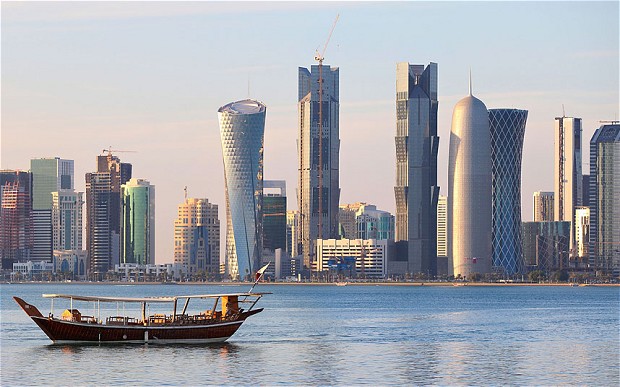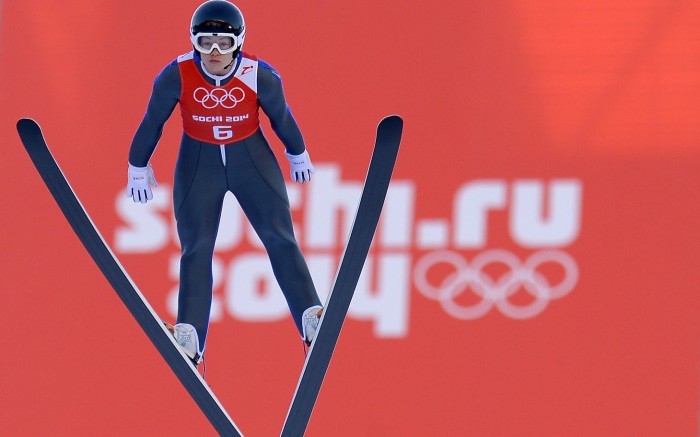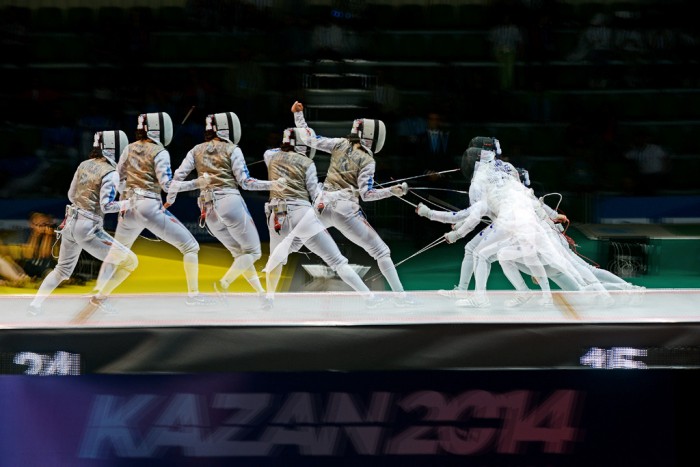David Owen: There may be blood – sports events and the collapsing oil price
“Tell me,” said the President to his distinguished visitor, “What was the oil price the first time we met?”
The answer was $25 (£16/€20) a barrel and the implication, presumably, that times remained relatively good and that the rout which has seen the price of Brent crude halve to around $60 (£39/€49) in the space of six months would not panic the country into rethinking its international-status-through-sport policy.
Sports event owners, who in recent times have grown dependent on prestige-hungry oil and gas-producing states in the Gulf and Eastern Europe/Central Asia, must be hoping, as a turbulent year nears its conclusion, that such attitudes hold good into 2015.
As citizens in cuddly, affluent Western Europe, as well as vigorous, youthful democracies such as Brazil, have manifested scepticism about the local benefits of hosting big sporting events, energy producers with compliant populations have stepped into the breach, their appetites unsated.
This demand for events from the likes of Qatar, Azerbaijan and Russia, as well as China, has propped up the sector at a time when pickings might otherwise have been slim.
For all the criticism they have weathered, notably over their successful bid for the 2022 FIFA World Cup, the international sports business wouldn’t half miss little Qatar if it turned its back on the industry.
Fortunately, as illustrated most recently by this week’s 10-year sponsorship deal with England’s Goodwood racecourse, there seems no sign whatsoever of this happening.

The Gulf states, by and large, have small populations already prosperous from energy exports and bulging sovereign wealth funds well capable of tiding the region over while prices are low.
They also have zero tradition of the sort of moderate popular dissent that derailed a number of prospective and actual European Winter Olympic and Paralympic bids.
That too is true of the former Soviet republics, and while their populations are less well-off, more far-flung and rather more numerous than their Gulf counterparts, I have the strong impression that their leaders are determined and impatient nation-builders.
Nor is their room for manoeuvre restricted by the supply-side disciplines that members of the OPEC cartel might in time be required to abide by.
For a fair period at least, I suspect their inclination may be to make good the loss of revenue as a result of the price fall where possible by stepping up production.
When I visited Turkmenistan last month, far from cutting back, the projected size of the 2017 Asian Indoor and Martial Arts Games, to be staged in Ashgabat, seemed to expand almost by the hour.
I was startled to note that the part-built $5 billion (£3.5 billion/€4 billion) Olympic Complex incorporated an on-site monorail.
I do not though think that the international sports business will escape entirely unscathed from what is going on in the oil market.

The key difference here is that the energy market is just one of at least three interrelated sources of instability, the others being sanctions in response to the situation in Ukraine/Crimea and the plunging value of the rouble.
I speculated in September that, with so many major international championships earmarked for the country in the run-up to the 2018 FIFA World Cup, the sports sector might well find it was overexposed to the threat of a new Cold War.
So the warning signs have been there; in this context, the main impact of $60 a barrel oil could be to send these chickens winging their way home to roost a good deal earlier than expected.
Not all business interests in Russia will be hurting even if the recent hike in interest rates will hit borrowers and choke off growth: the rouble’s decline means that each barrel of Russian oil yields a similar number of Russian currency units as it did in the summer; producers of dollar-denominated commodities whose dollar prices have not fallen significantly should be swimming in roubles.
But of course the price of anything imported will seem much more expensive at just the time when the country has far fewer dollars at its disposal.
I would expect, then, sports goods manufacturers selling products manufactured elsewhere to suffer a pronounced decline in demand in Russia.
And – potentially more serious for those whose businesses are related to the international sports events industry – I would expect organisers of competitions already set to take place in Russia, such as next year’s World Aquatics and World Fencing Championships, to cut back as much as possible on imported goods and services.

©Kazan 2014
So such strictures might be expected to impact it, and the events themselves, less than in most other countries, certainly those mentioned in this article.
If I were an international sports consultant, however, I don’t think I would want my business plan to be too heavily reliant on Russia over the next couple of years.
Also – while trying to second-guess Russia is, as many who know it far better than me (starting with Churchill) have realised, as fraught with danger as trying to second-guess the price of oil in a year or two’s time – I think we can probably kiss goodbye to any realistic prospect of a St Petersburg bid for the 2024 Summer Olympic and Paralympic Games.
Under normal circumstances, Sochi 2014 would, in spite of its controversies, have served as an impressive stepping-stone to a Russian Summer Games bid.
It still very well might; but the chances of this being for 2024, given that such a bid must be launched next year, have I think receded significantly.

